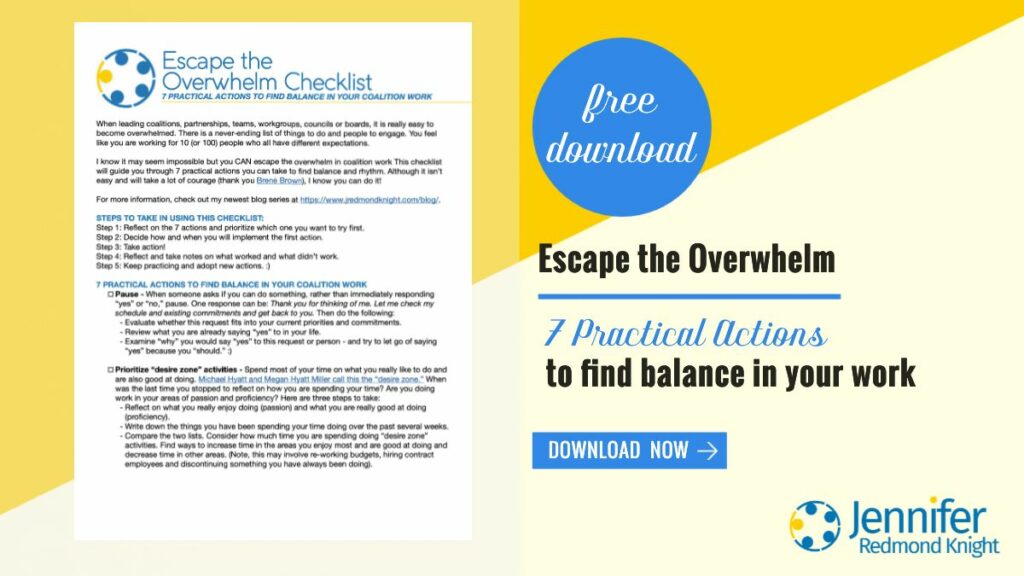Whenever we develop a workplan or a coalition strategic plan, focusing on action and implementation is easy but finding time for reflection is difficult. Although we may include evaluation, many times it becomes a “check the box” type of activity. When our calendars get so busy that we are moving from one meeting to another or one project to another, we miss the opportunity to reflect. When we do not reflect, we are not in a position to protect our time, our energy and our ability to be most effective in our coalition work. Join me this week as I provide reasons it is important to reflect so that you can protect your time and effort.
Learn from past experiences
When we take the time to reflect, especially when we have been in a place of overwhelm, we can learn from past experiences. One of my best lessons has been related to how much time and effort it actually takes to implement a project, meeting and/or an event. Reflection (including brief notes and time tracking) has helped me better estimate time and the type of support needed. Late last year, I was invited to participate in an exciting opportunity and asked to develop a proposal of the time and effort expected. Previously, I would develop a proposal and then realize it is going to take MUCH more time than I expected and find myself overwhelmed and overcommitted. This time, after lots of reflection on previous experiences, I developed a proposal and finished this project within 5 hours of my projected effort (out of a 100+ hour project!).
Re-focus on what is most important
Although we may say that something or someone is important to us, when we take the time to reflect, we can evaluate whether or not our time is actually spent on what (who) is most important. If our calendar and commitments are not aligned with what we want to be important, reflection can help us re-focus. Reflection can also help us practice self compassion that will help us show kindness to ourselves (as we would to a friend). When we practice self-compassion, we are able to re-focus rather than get stuck in a cycle of self-criticism (I will never change, this is never going to happen).
Prevent future frustrations
Although the exact author is unknown, the quote “Insanity is doing the same thing over and over and expecting a different result” can apply well here. When we skip reflection time, we may not realize we are doing the same thing again and again. Regularly reflecting helps us with planning and decision making so that we prevent some of the future frustrations for ourselves and our coalitions.
Reflection does not have to be complicated or take a lot of time. One of the new things I have incorporated into my ideal week is one hour a week of “thinking time” where I am reflecting on ideas, experiences, and thoughts. I also regularly implement a “weekly preview” where I reflect on what worked and didn’t work in order to plan and protect the next.
How would you like to incorporate (or enhance) reflection in your schedule?
If you would like additional support to help with finding time to invest in your strengths, check out my free resource, Escape the Overwhelm: 7 Practical actions to find balance in your work.

Photo by Clément Falize on Unsplash
